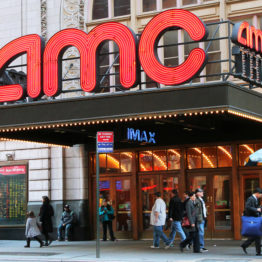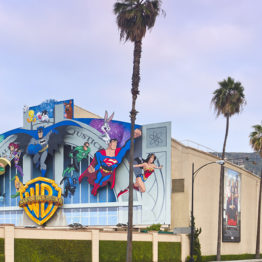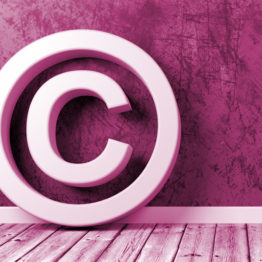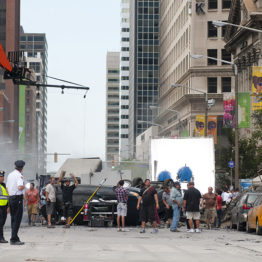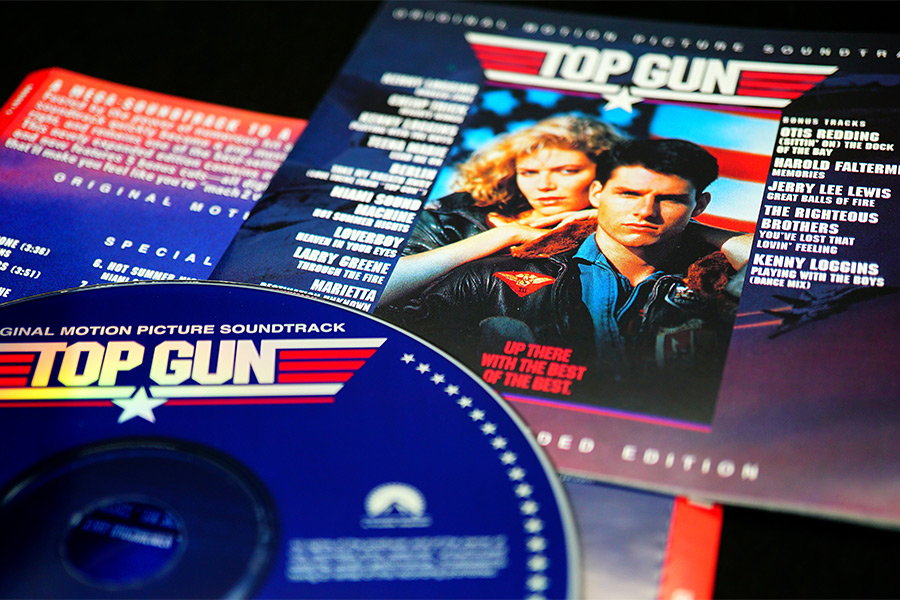
Music is one of the most important elements of any picture. The right music can be transcendent—the wrong one downright distracting. The difference between the two is very often money. Independent producers tend to under budget music costs, then “borrow” from the music budget whenever they have shortfalls in other areas. I strongly recommend that you have a composer create your picture’s music budget, so that you know exactly how much money is needed. In addition, if you plan to license pre-recorded music, hire a music supervisor, who will help you not only find the right music, but also budget it. Having sufficient money for the score and the licensing of pre-recorded music is all key to music that is worthy of the picture it accompanies.
Composer’s Agreement
Engagement
The Composer’s Agreement includes description of the services the composer is rendering, such as to compose, orchestrate and adapt a soundtrack for a motion picture of 90 to 120 minutes running time to conduct the musicians and produce the soundtrack. The producer will expect the composer to render his services exclusively to the production company until the composer delivers the mixed answer print.
Compensation
The compensation paid to composers run the gamut and are dependent on the composer’s track record and the production budget. Producers I represent have paid their composers as little as $10,000 and as much as $100,000. The composer’s fixed compensation is paid in installments. I usually negotiate for 3 installments, so that the composer receives one-third of the payment at commencement, one-third when the composer starts recording the score, and the last one-third when the composer delivers the score together with all cue sheets, master tapes, protection dubs and other properties and documents related to the score.
I usually make the composer’s compensation a package deal that is inclusive of all costs to create, record and produce the score, which means that the composer will have to hire and pay everyone that works on the score with him. You may have to offer the composer deferred compensation to supplement the fixed compensation, 1% of the picture’s net profits, and/or a portion of the score’s publishing income, in order to make the offer appealing if you are paying less than the composer’s usual quote. “Publishing income” refers to monies that are earned by the score and a portion of which are paid to the composer when the music is exploited commercially, separate and apart from the picture.
Credit
The composer will be credited on screen and in paid ads. On screen the composer’s credit will appear in the main titles on a single card. The composer normally receives his credit in paid ads when the full billing block is used. The “full billing block” is all of the credits that have to appear in paid ads. The composer may want front cover credit of any soundtrack album produced and released. Note that you may agree to use “reasonable efforts” to help the composer receive a credit on the album’s front cover, but cannot grant it outright because that is credit under the control of the record label.
Rights
The grant of rights conveys upon the production company the right to the results and proceeds of the composer’s work. As you will remember, the production company normally acquires all rights to its employee’s work so that it may, among other things, do with said work as it pleases. Notwithstanding, certain composers may limit changes made to their music. This can be problematic if you need to re-edit the picture for any reason. I include language in the Composer’s Agreement whereby the composer cannot unreasonably withhold his approval of required changes if he has the right to approve changes to the score.
Representations and Warranties
The composer will need to represent and warrant that the material created by him is original and that it does not infringe the copyright of a third party. In addition, he will have to agree to indemnify and hold the production company harmless from losses due to breach of this clause.
Pre-Recorded Music & Pre-Existing Musical Compositions
Producers are always surprised by the complexity and expense associated with the licensing of pre-recorded music and pre-existing songs. It is the reason they usually pay me to handle it as part of my production legal services though I usually advise them to hire a music supervisor if they need assistance choosing music. “Pre-recorded music” is defined as an existing recording of a song. A “musical composition” is the music written by the composer, which is then performed by a musician or singer. A recording has two components: the musical composition and the recording of the performance. You will need to acquire a license for each prior to incorporating a recording into your picture. A “license” is a grant of permission.
Master License
You need to secure a Master License for any recording that you are incorporating into your picture’s soundtrack. For the purpose of this chapter, we will assume that the recording is owned by a record label. You start the process by contacting the film licensing department of the record label that owns the recording. The record label may request the screenplay or rough cut of the picture prior to agreeing to license the recording. The record label will give you a quote that is based where and how you exhibit the picture, e.g., North America, foreign countries, festivals, theatrical, TV, DVD, VOD, etc. The quote will also be influenced by the recording’s placement in the picture, e.g., embedded in a scene (and how), over the opening credits, or over closing credits. You may not specifically know every place you are exhibiting the picture if you are licensing the recording prior to securing distribution, and do not want to pay for more uses than you need. In such cases I usually recommend that my clients enter into a “step deal” arrangement with the record label, which gives you the freedom to pay as you go for the uses and territories your need. If you do not have a theatrical release, then you do not pay for one under a step deal.
Producers and directors are always disappointed to discover that they cannot afford a song they had their hearts set on licensing. Go into this process with your eyes open. The record labels and publishers are in it for the money. If you want to license a popular song by a world renowned recording artist, then you are going to have to pay for it. I nearly had to resuscitate a client when I told him that Frank Sinatra’s record label wanted a $150,000 Master License fee for the recording my client wanted to license. Do not marry yourself to a specific recording unless you have the budget to license it.
You do have options if the recording you want is too expensive. Opt for a cover of a song (a recording of the song by another artist) or pay to re-record it. You can license the underlying music (see the “Synchronization License” section below) and pay to have it recorded specifically for your picture. Just be careful that you are not doing a sound-alike recording, since this might get you into hot water with the record label and/or artist. You may also ask the record labels for help if you are open to suggestions and cannot afford a music supervisor. If you send them your screenplay while in pre-production, they may make suggestions regarding recordings they believe would be a good fit. You might luck out if they have a band they want to break or have lesser used recordings that they want to get into a picture. The Master License fees will be less for these types of recordings.
Synchronization License
The record labels only control the use of their recordings. The composer’s interest in the recording’s underlying musical composition is known as the “publishing,” and it is administered by the composer’s publishing company. You will need to also enter into an agreement with the music publisher that holds the rights to the composer’s or composers’ interest in the musical composition. The “Synchronization License,” also known as a “sync license,” governs your use of the musical composition. Securing a sync license can be more complicated than the master license because it is not uncommon for one song to have multiple composers and, hence, publishers. I cleared a Janet Jackson song once that had five composers and as many publishers. To “clear music” means to secure the right to utilize the music, so that you can include it in your picture without risk of copyright infringement.
The record label might be able to tell you who holds the publishing on the recording you are licensing. Notwithstanding, I always double check myself. You do this by going onto the ASCAP, BMI and SESAC websites: these are the performing rights organizations (“PROs”) to which each composer belongs. You can do a search on each PRO’s website to ascertain the identity of the composers and their music publishers. You will need to conduct research at all three websites if a musical composition has more than one composer.
The process for quotes is the same with the music publishers as it is with the record labels. The publishers will want favored nations treatment if there is more than one, so that no publisher is paid a higher license fee than another. Again, I advise that you opt for a step deal.
Reuse Fees
The American Federation of Musicians (“AF of M”), the musician’s union, requires payment of a “reuse fee” whenever prerecorded music is incorporated in a film and the musicians are union members. The reuse fee is the equivalent of a session fee for each musician who performed on the song when it was originally recorded.31 Reuse fees can significantly inflate the music budget if you are licensing a fully orchestrated symphonic recording. You have to factor in the reuse fees into the overall cost of licensing the recording you have in mind. The AF of M is supposed to provide you with a copy of the original session sheet, which lists every musician that performed on the recording. Do not agree to pay the reuse fee unless the AF of M provides the original session sheet, since the AF of M cannot pay the musicians unless they know their identities.
The singers on the recording you are licensing may be members of SAG/AFTRA. You will have to go through the same process with SAG/AFTRA as you do with the AF of M. SAG/AFTRA may not have the original session sheet available, but will know the identity of the singers who performed on the recording.
The best advice I can give you when it comes to licensing music is to start early. Tracking down publishers and getting quotes can take time—especially when the composers are self-publishing. Let the attorney doing your production legal handle the licensing process if you know what you want to license. Otherwise, hire a music supervisor.




